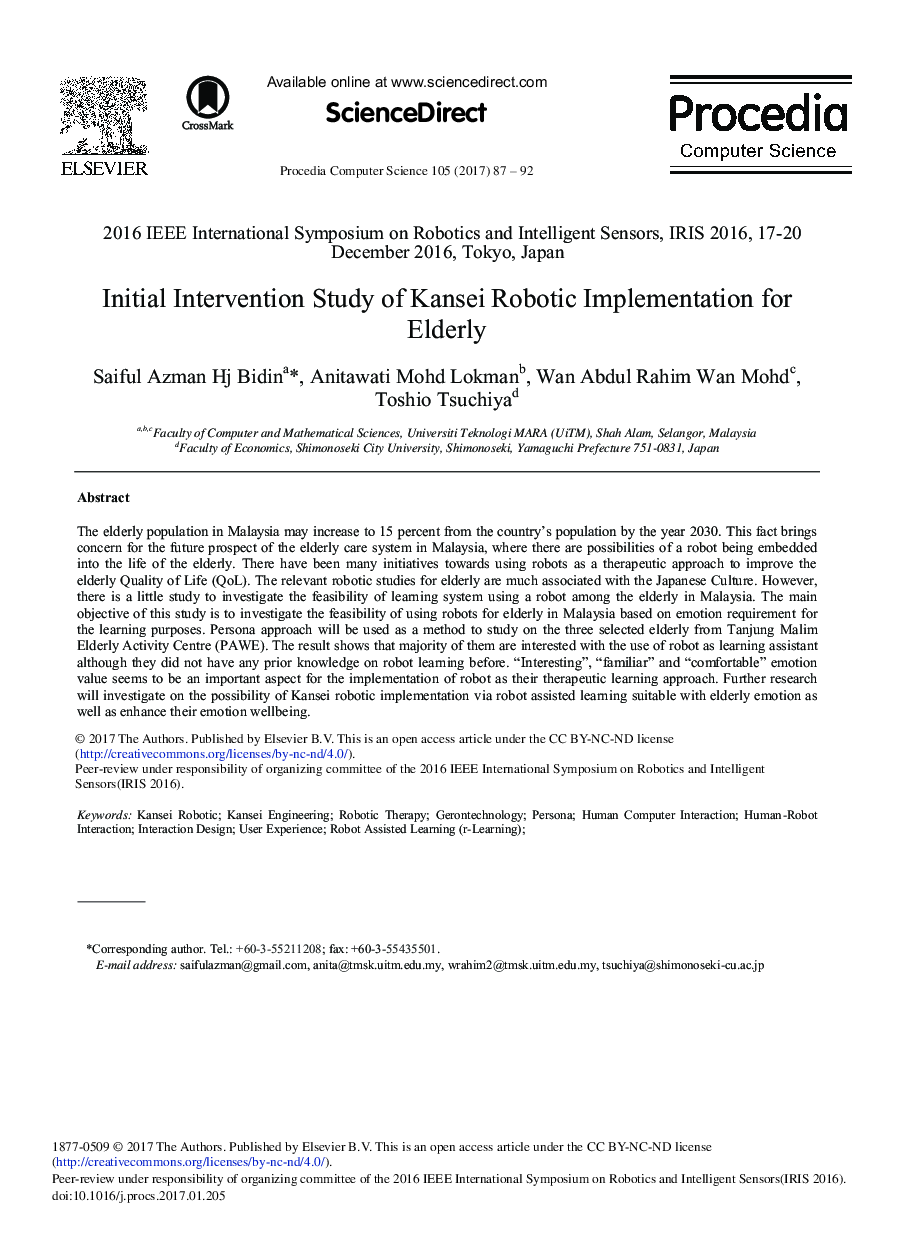| Article ID | Journal | Published Year | Pages | File Type |
|---|---|---|---|---|
| 4961543 | Procedia Computer Science | 2017 | 6 Pages |
The elderly population in Malaysia may increase to 15 percent from the country's population by the year 2030. This fact brings concern for the future prospect of the elderly care system in Malaysia, where there are possibilities of a robot being embedded into the life of the elderly. There have been many initiatives towards using robots as a therapeutic approach to improve the elderly Quality of Life (QoL). The relevant robotic studies for elderly are much associated with the Japanese Culture. However, there is a little study to investigate the feasibility of learning system using a robot among the elderly in Malaysia. The main objective of this study is to investigate the feasibility of using robots for elderly in Malaysia based on emotion requirement for the learning purposes. Persona approach will be used as a method to study on the three selected elderly from Tanjung Malim Elderly Activity Centre (PAWE). The result shows that majority of them are interested with the use of robot as learning assistant although they did not have any prior knowledge on robot learning before. “Interesting”, “familiar” and “comfortable” emotion value seems to be an important aspect for the implementation of robot as their therapeutic learning approach. Further research will investigate on the possibility of Kansei robotic implementation via robot assisted learning suitable with elderly emotion as well as enhance their emotion wellbeing.
